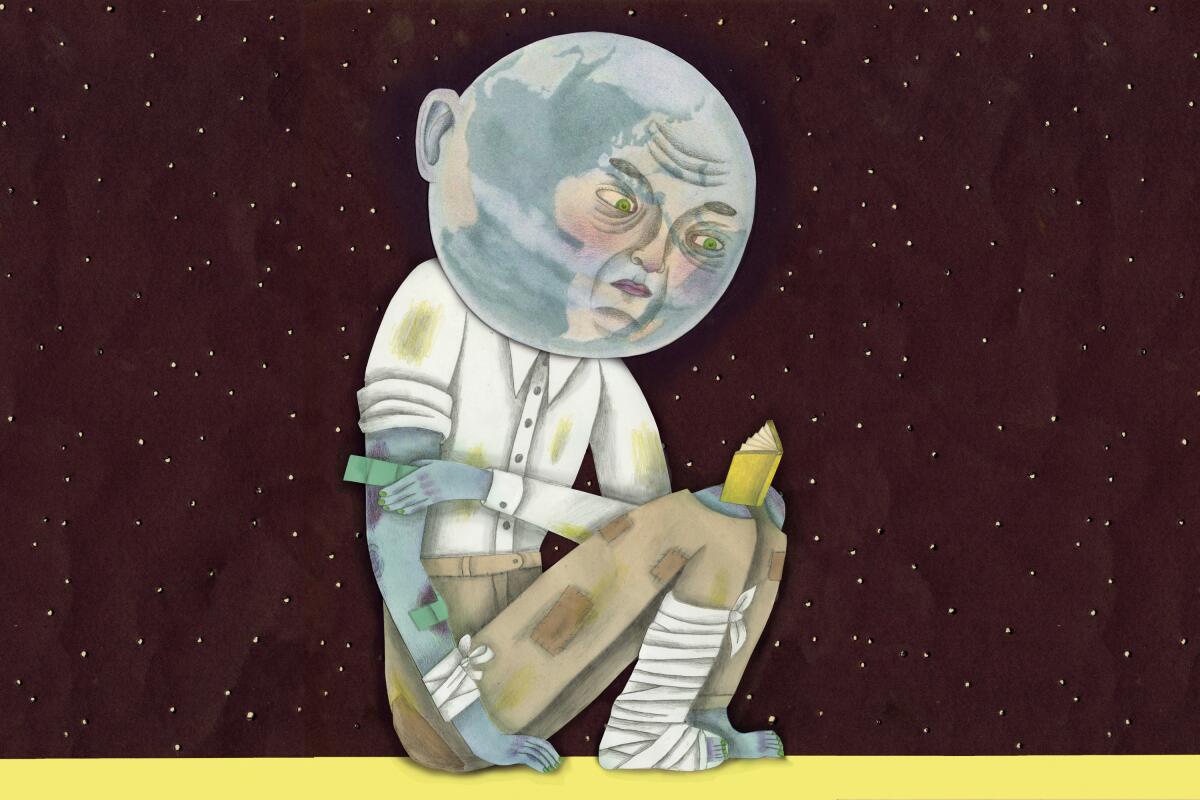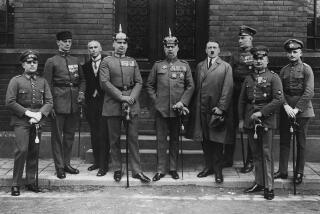Op-Ed: Words to fight the many faces of tyranny

- Share via
It was one of those uncanny nights when everything blurs and then clarifies. It was July 20, 2017, and my family had just arrived in Warsaw. A protest march was underway in defense of an independent judiciary, so we joined it.
As the march proceeded down a long boulevard toward the presidential palace, I put my daughter, then 5, on my shoulders. The route was long, and I had just about given up when a bicycle taxi appeared and gave us a ride, for free, to the edge of the woods around the palace. Now in the dark, we walked hand in hand through the trees toward a voice I heard projected by microphone.
I had a dreamy sense that the words were familiar: a protester, I realized, was reading aloud from a Polish translation of my book “On Tyranny: Lessons From the Twentieth Century,” which had been published a few months earlier. It was lesson No. 2, “defend institutions.”
It was a long, strange journey for those words. I am a historian of Eastern Europe who has written about Nazism and Stalinism and who was educated by people who experienced and were repressed by communism. That July was the last time I saw my doctoral advisor Jerzy Jedlicki, a Holocaust survivor who was interned in a camp in communist Poland.
I wrote “On Tyranny” in response to the American presidential election of 2016, informed by what I have learned from the European past about how democracies fall and how individuals can respond. It was meant to help Americans recognize patterns of oppression in time to act. It did reach Americans, which was gratifying. But to my surprise it also reached back into Eastern Europe. In Poland the book was read aloud in protests throughout the country. It was even recorded as rap in 2019.
Some of the lessons, like No. 10 (“believe in truth”) were inspired by my contemporaries. Serhiy Zhadan is an extraordinary Ukrainian creator of culture: novelist, poet and singer in a ska band. In 2014, when Russia invaded Ukraine, he took to the internet to work against Russian propaganda. At the time, Russian soldiers, mercenaries and nationalists were pouring across the Ukrainian border, creating the appearance of civil unrest in east Ukrainian cities such as Kharkiv, where he lives. Zhadan joined a group of locals who tried to defend city buildings. He was beaten and told to kneel. When he refused, attackers broke his skull. So much was in that head, so much talent, so much to say: and he had refused to bow it.
He recovered and so did his city. In June 2017, just before I left for that trip to Poland, I went to New York see his band. They had added a song to their repertoire: a cover of the Clash’s “Know Your Rights” in which Zhadan included the 20 lessons of my book in the lyrics.
In the late 2010s, people around the world were looking for ways to articulate threats to democracy that had no clear name and to find words that would describe their own action. In this the book played a modest part. It found its way onto posters in Brazil, into Parliament in India, into peacekeeping missions in Syria, into protests everywhere. In Hong Kong, defenders of human rights affixed stickers with the lessons around the city. On the sticker of lesson No. 1, “do not obey in advance,” was a person refusing to kneel.
Tyrants draw lessons from the past and from one another, and those who oppose them must do the same. If we want to grasp what is happening in time to make a difference, we need to know the patterns, which we can find in history and in other countries.
Few democracies these days are killed by coups. They die when aspiring autocrats get elected and subvert democracy from inside.
All of us who believe in rule by the people can see how the attack on freedom is happening as societal and political structures weaken. In China and Russia the regimes deliberately undermine political values. Globalization is exploited by tyrants to put an enemy’s face on unpredictability. Ecological catastrophes are used by tyrants to divide societies and to blame the victims. Social media platforms are used to organize and energize the backlash to democratic movements. Increasing economic and social inequalities further distort national conversations. And cowardly politicians and judges, with a moral blindness to the threats to freedom, concede rights to an empty legalism.
Democracy rises and falls globally. To believe that America is exceptional, democratic by nature, is only to aid the tyrants. It is this very arrogance about our own country that has made us so vulnerable to anti-democratic trends. We did not listen in 2016 when others warned us of patterns they observed in our country. If you think that what you do is democratic because of who you are, you will not notice when you help to bring about tyranny. America is only as exceptional as we make it. That is lesson No. 8, “stand out.”
If we want to be heard around the world, we should listen especially to those who have taken greater risks than we, and in worse circumstances. We have much to “learn from peers in other countries,” which is lesson No. 16.
Timothy Snyder is a professor of history at Yale University and a bestselling author. Nora Krug is a professor of illustration at Parsons School of Design and author whose work has been seen in numerous publications. Their collaboration, a graphic edition of “On Tyranny: Twenty Lessons From the Twentieth Century,” will be published on Oct. 5.
More to Read
A cure for the common opinion
Get thought-provoking perspectives with our weekly newsletter.
You may occasionally receive promotional content from the Los Angeles Times.











